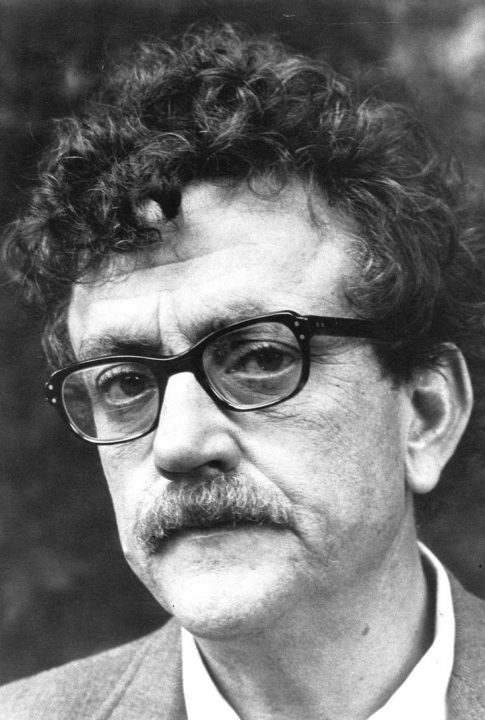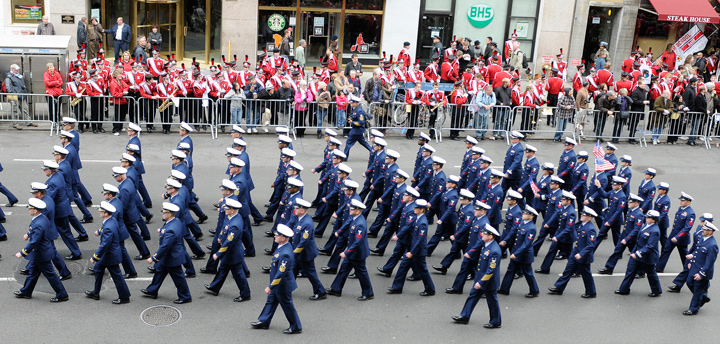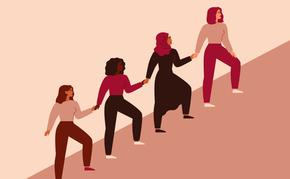The views expressed in our content reflect individual perspectives and do not represent the authoritative views of the Baha'i Faith.
Today, November 11, the United States observes Veterans Day, while many other nations celebrate it as Remembrance Day, marking the formal end of the First World War and honoring the war dead.
Initially, though, when this holiday first began, the world named November 11th Armistice Day, so I’d like to humbly suggest that we return to that name — and to the original intent of the day as a sacred observance of peace.
As a combat veteran myself, I hope no one ever suffers through another world war or becomes one of its millions of victims.
RELATED: What War Did to Me – and to Us
I’m not the first one to suggest this return to the old Armistice Day name. Kurt Vonnegut, in his celebrated 1973 novel Breakfast of Champions, wrote:
“… November eleventh, accidentally my birthday, was a sacred day called Armistice Day. When I was a boy … all the people of all the nations which had fought in the First World War were silent during the eleventh minute of the eleventh hour of Armistice Day, which was the eleventh day of the eleventh month.

It was during that minute in nineteen hundred and eighteen, that millions upon millions of human beings stopped butchering one another. I have talked to old men who were on battlefields during that minute. They have told me in one way or another that the sudden silence was the Voice of God. So we still have among us some men who can remember when God spoke clearly to mankind.
Armistice Day has become Veterans’ Day. Armistice Day was sacred. Veterans’ Day is not.”
So why Armistice Day instead of Veterans Day or Remembrance Day? What difference could a name possibly make?
Well, an armistice describes a truce that precedes a peace treaty — that actual holy moment, as Vonnegut wrote, when armies lay down their arms and stop slaughtering one another. The original intent of Armistice Day, then, was a global celebration of peace, of disarmament. The word armistice comes from Latin, where arma means armament and –stitium means stoppage. In World War I, initially known as “the war to end all wars,” the hope of a lasting worldwide peace gave an important meaning to the word armistice.
Sadly, Veterans Day and Remembrance Day have now become almost the opposite kind of observances, when we fly the colors of our country, put little plastic flags on the graves of dead soldiers, and celebrate and venerate all military veterans as “heroes.” Veterans Day can now mean jingoistic displays of nationalism, military power, and wartime victory, complete with parades and marching bands, encouraging kids to aspire to that kind of militaristic heroism themselves — and become the next generation’s dead soldiers.

Perversely, we’ve turned the day into a recruiting tool for further war instead of a celebration of peace.
Maybe that has happened because the noble ideal of Armistice day—to protect future human life from future wars—did not succeed. That “war to end all wars,” WWI, was quickly followed by WW II a few decades later.
But this historical fact does not mean we should throw out the goal of disarming the world’s nations and achieving a lasting peace. As a world, we’ve actually achieved a shaky, tentative peace during the past three-quarters of a century since the Second World War ended. Yes, we’ve waged regional conflicts and proxy wars, and many have died as a result, but another massive World War has not occurred. This is progress.
RELATED: Weapons of War: the Malignant Fruits of Material Civilization
However, our planet’s military forces are still armed to the teeth. We now possess more powerful destructive weaponry than at any past period in human history. Wars rage right now in Europe, the Middle East, and Africa. If history is a gauge, we humans have always tended to use the weapons we develop sooner or later. The nationalistic conflicts and disputes that could cause the use of those fearsome weapons still exist, and should prevent us from growing complacent. Rivalries and political clashes in one region of the world could easily degenerate into a global war. We haven’t yet perfected an international mechanism — the representative world Parliament the Baha’i teachings call for — which would prevent the escalation of a proxy or regional conflict into a planetary one.
If we go back to calling November 11th Armistice Day, perhaps it will allow us to focus, for at least one day each year, on the gradual multilateral disarmament the Baha’i teachings advocate and the world so desperately needs. Maybe it will help us take our collective fingers off the triggers.
The Baha’i teachings define global disarmament and peace between nations as humanity’s greatest future accomplishment. Baha’u’llah, the prophet and founder of the Baha’i Faith, wrote in one of his tablets:
We have enjoined upon all mankind to establish the Most Great Peace—the surest of all means for the protection of humanity. The sovereigns of the world should, with one accord, hold fast thereunto, for this is the supreme instrument that can ensure the security and welfare of all peoples and nations.
Of course, as Abdu’l-Baha described it to a newspaper interviewer during his 1912 trip to Canada, that accomplishment hasn’t permanently happened yet, and we have work to do to get there:
Now the question of disarmament must be put into practice by all the nations and not only by one or two. Consequently the advocates of Peace must strive day and night, so that the individuals of every country may become peace-loving, public opinion may gain a strong and permanent footing, and day by day the army of International Peace be increased, complete disarmament be realized and the Flag of Universal Conciliation be waving on the summit of the mountains of the earth.
Do you consider yourself an advocate of peace? Do you “strive day and night” to “become peace-loving”? Here’s a suggestion Abdu’l-Baha made to an audience in Paris more than a century ago:
I charge you all that each one of you concentrate all the thoughts of your heart on love and unity. When a thought of war comes, oppose it by a stronger thought of peace. A thought of hatred must be destroyed by a more powerful thought of love. Thoughts of war bring destruction to all harmony, well-being, restfulness and content.
Thoughts of love are constructive of brotherhood, peace, friendship, and happiness.
When soldiers of the world draw their swords to kill, soldiers of God clasp each other’s hands! So may all the savagery of man disappear by the Mercy of God, working through the pure in heart and the sincere of soul. Do not think the peace of the world an ideal impossible to attain!
So today, when you observe Veterans Day or Remembrance Day in your country, remember that only a true global armistice will save future veterans — the ones who are small children now. By working to end war, you can help spare the lives of those children.
You May Also Like
Comments

















Then I read your article which awakened me to the underlying animus of war. Thank you for sharing your astute wisdom and knowledge. I dare not, though, pass this on to my Senator in that many are unlikely to accept the Baha’i recommended ...actions as feasible in taming our competitive and warring tendencies.